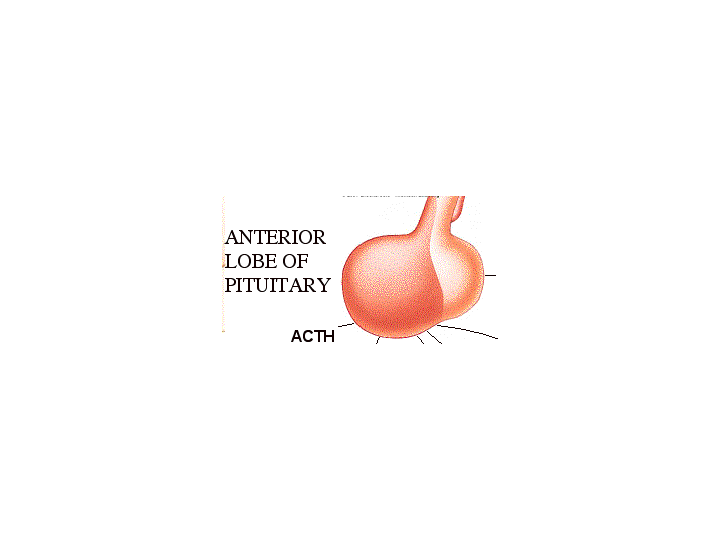
Pituitary Gland
The pituitary gland is a small bilobed gland lying at the base of the brain. The two lobes,
anterior and posterior, function as independent glands. The
anterior pituitary secretes the following hormones:
- Growth hormone fosters growth in a variety of body tissues.
- Thyroid stimulating hormone (TSH) stimulates the thyroid gland to secrete its own hormone,
thyroxine.
- Adrenocorticotrophic hormone (ACTH) stimulates the adrenal cortex to secrete its corticoids.
- Prolactin is responsible for milk production by the female mammary glands.
- Follicle-stimulating hormone (FSH) spurs maturation of seminiferous tubules in males and
causes maturation of ovaries in females.
- Luteinizing hormone (LH) induces interstitial cells of the testes to mature by beginning to
secrete the male sex hormone testosterone. In females, a surge of LH stimulates ovulation of the
primary oocyte from the follicle. LH then induces changes in the follicular cells and converts
the old follicle into a yellowish mass of cells rich in blood vessels. This new structure is the
corpus luteum, which subsequently secretes progesterone and estrogen.
This animation (Audio - Important) describes the
anterior pituitary.
The posterior pituitary is a direct extension of
nervous tissue from the
hypothalamus. Nerve signals cause direct hormone release. The two hormones secreted by the
posterior pituitary are ADH and oxytocin.
- ADH acts on the kidney to reduce water loss.
- Oxytocin acts on the uterus during birth to cause uterine contraction.
This animation (Audio - Important) describes the
posterior pituitary.
PREVIOUS
NEXT
LECTURE 22 INDEX
MAIN INDEX
